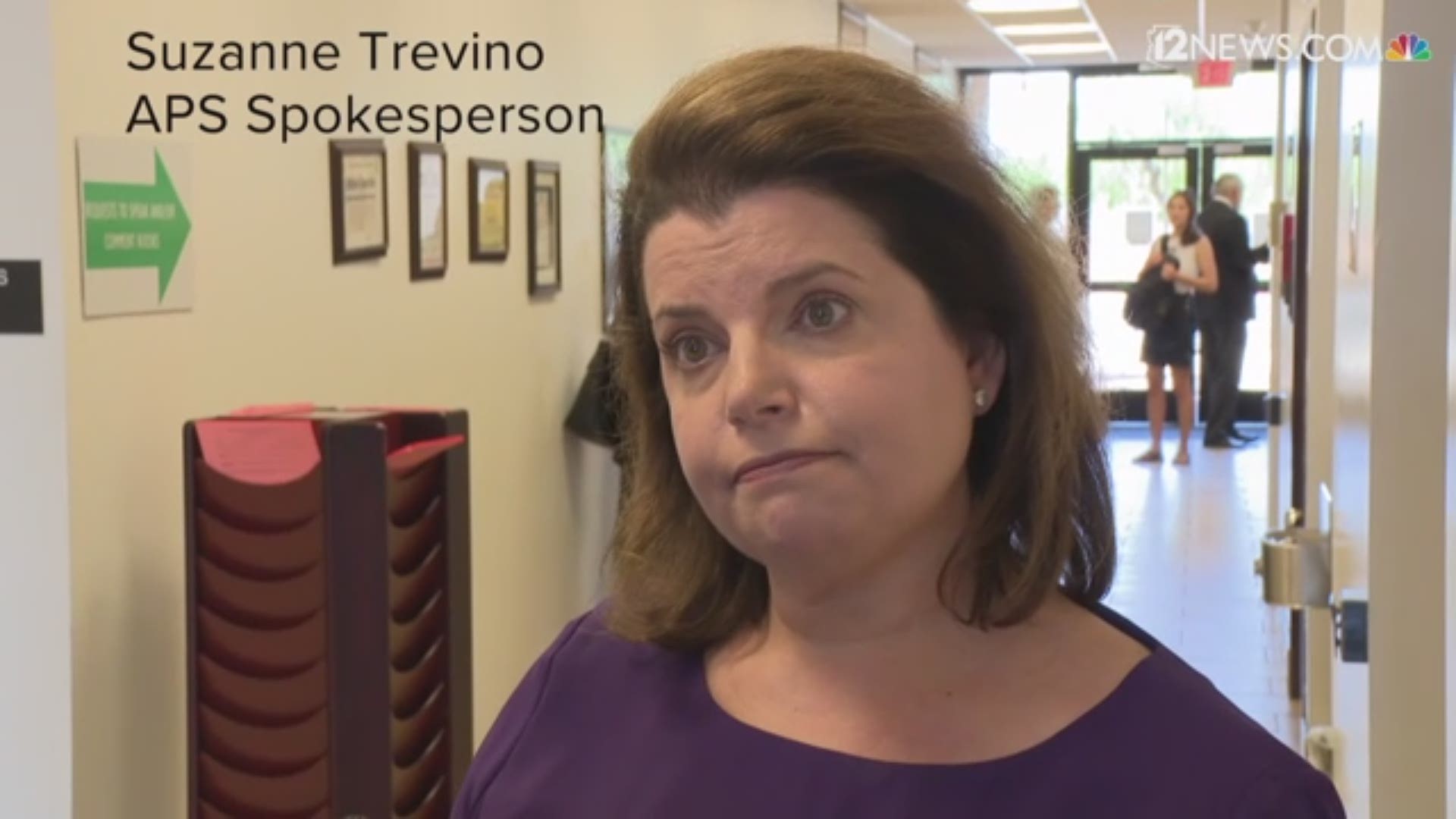Editor's note: In the video above, Team 12's Joe Dana interviews an APS spokesperson and attorney after CEO Don Brandt was absent from an Arizona Corporation Commission meeting pertaining to the death of an APS customer.
PHOENIX (AP) — State regulators on Thursday enacted emergency rules barring most Arizona electric utilities from disconnecting power to customers who are late on their bills from June 1 through Oct. 15, when soaring desert heat can be lethal.
The unanimous action by the Arizona Corporation Commission comes less than a week after it became known that a 72-year-old Sun City West woman died after her power was disconnected on a 107-degree day last September. The emergency rules take effect immediately and can last up to a year while regulators develop final rules on shutoffs in hot weather.
Arizona Public Service, the state's largest electric utility with 1.1 million residential customers, disconnected Stephanie Pullman's power because she only paid $125 of her $176 bill. The company suspended disconnections last Thursday, the day the Phoenix New Times reported Pullman's death, and Tucson Electric Power followed on Friday.
The commission also acted quickly, with three of five commissioners calling for the rare emergency rulemaking and the two others following.
"We have seen what we can do when we need to move expeditiously," Commissioner Sandra Kennedy said Thursday. "I think this is really just the beginning. I think there is more we can do in terms of relief."
Thursday's vote was unanimous, although Commissioner Lea Marquez Peterson was on a preplanned vacation and didn't participate. She supported the measure and called for research into whether other deaths have occurred.
The originally proposed cutoff ban period was June 1 to Sept. 30, but it was extended by two weeks into mid-October at Kennedy's request. Commissioners also adopted a ban on utilities assessing late fees or interest during the summer months.
Salt River Project, a major power supplier in metropolitan Phoenix with about a million customers, isn't covered by the commission because it is a quasi-government agency.
Commissioner Justin Olson said he worried that customers would accrue such large bills during the disconnect ban period they might end up disconnected anyway.
"I'm concerned ... that it may create an enticement for folks to build up substantial amounts of past-due utility bills and then not be able to pay that amount and it will lead to increased disconnections," Olson said. Still, he said he "enthusiastically supported" the measure.
Kennedy countered that banning late fees and interest is actually an incentive.
"I can still be delinquent, pay and catch up without having to pay those fees and try to figure out where those dollars are going to come from," said Kennedy, the only Democrat on the panel. "I understand it's a hardship. It's a hardship because people can't pay their bills. It's a hardship because rates are too high. What do we do about that?"
An APS spokeswoman said the company is looking into how Pullman's power was shut off and is working with consumer advocacy groups to figure out how to avoid similar situations. "I will tell you if there is something we can do differently, do better for our customers, that's what we're looking at right now," Suzanne Trevino said.
People who don't have their electricity cut off for non-payment during the summer months would still be required to pay their bills. And the commission's utilities division director, Elijah Abinah, said in a memo to commissioners that adopting the rule may raise rates for all customers, because payment delays and an increase in bad debt could be passed on to all customers.
The commission is tasked with overseeing electricity, water and other firms granted monopolies to operate in certain areas of the state. They set rates based on a utility's costs and a fair rate of return on its investments. It does not regulate companies like SRP that are considered government agencies.
SRP spokesman Scott Harelson Wednesday said his company hasn't decided whether to voluntarily follow the new rules if they were to be adopted, but the company works hard to avoid disconnections and suspends them during extreme heat events, as required under existing commission rules. He didn't immediately respond to an inquiry Thursday.
No major utility opposed the plan, but a small utility that serves nearly 40,000 customers in the Bullhead City area wasn't happy.
"The proposed rule offers a sledgehammer to a rule that for the most part has served the Arizona Corporation Commission, utilities and their customers well for 37 years and which could have unintended consequences ..." wrote William Sullivan, an attorney for the Mohave Electric Cooperative.
Sullivan noted that Bullhead City opens cooling centers during extreme heat events, the company has payment options and that anyone who move to areas with high heat "assumes special responsibility to be prepared for extreme weather."

